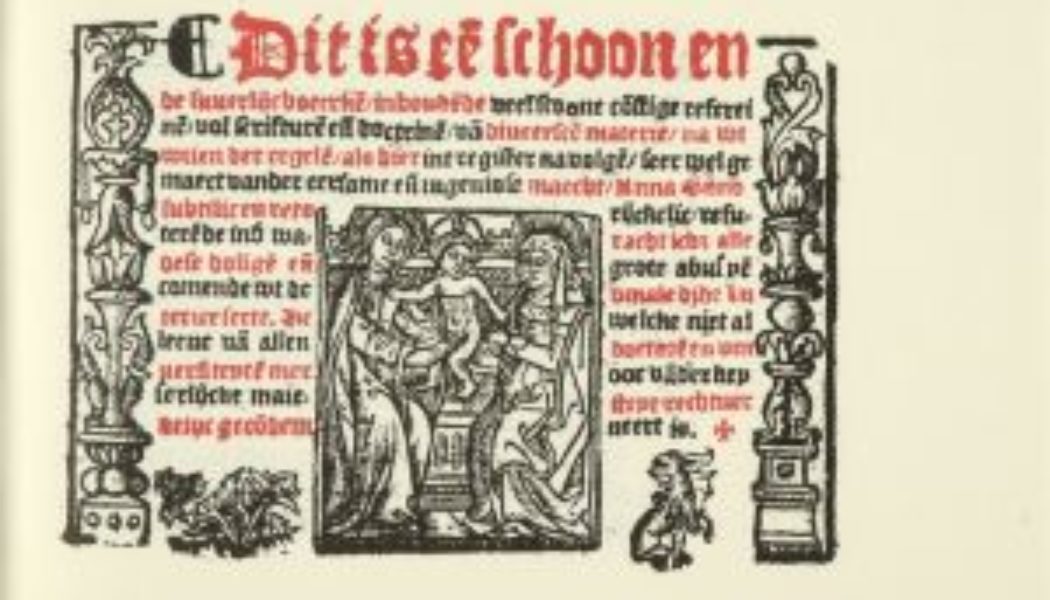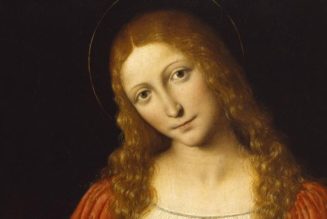“So put your mind to it…”
January 31, 2023 by Amy Welborn
I’d like to you consider a 16th century woman from the Low Countries. No, don’t run. Give me a minute.
If you take a look at what I’ve got below, you might see a couple of things:
First, to intelligently discuss “the role of women in the Church” is not as simple as some try to make it. The woman discussed below was the first vernacular writer to gain fame through the printing press. And much of what she wrote was directed against Martin Luther – and she was encourage in this work.
Secondly, when you get to the end, you will see plus ça change in action. The perception that those with actual power and responsibility to do something about urgent Church problems are staying silent while the building’s burning down around them? And the willingness to publicly voice that criticism?
As you see below – it’s been done. There’s a history of it, and this is one tiny moment in that history.
” Each Should Tend His Own Garden”: Anna Bijns and the Catholic Polemic against the Reformation
Anna Bijns was a well-known poet of her period and –
She was in fact the first writer in the vernacular to achieve widespread fame through the printing press. Everything she experienced in her city was material for her sharp pen. Nothing was taboo: badly thwarted love, the vain illusions of Luther and his followers, the threat of freebooters from Gelderland at the city gates, the insufferable policy of tolerance pursued by the city council, deceit and conflict within marriage, the sad but well-deserved lot of hen-pecked husbands and the need to relax with the hilarious nonsense of the repertoire of popular festivals.
She is able to express all that excitement with a verbal dexterity almost unequalled in Dutch literature. Complex rhyme-schemes, alliterations and neologisms gave her texts an irresistible cadence, while the subtly orchestrated passion still came across as natural. She was also the first author in Dutch literature, to present herself emphatically as an individual with personal views and emotions of her own.
She was also a devout Catholic and determined to do what she could, in her small way to fight heresy. So she wrote poems and disseminated them. The article explores this aspect of the culture – most of the poetry-making and disseminating was oral, but she, as a woman in Antwerp, did not have access to the public fora in which that occurred. (In other cities women did, but not in Antwerp.)

Bijns was one of the very few Catholic lay people in the Low Countries who was prepared to take her fight for the Catholic cause into the public domain, and she was the only one to do this in vernacular print. …
…..Although we know of many Catholic poems that derided the Reformation, these were rarely published in print, and mostly date from after 1560. The first author genuinely to follow in Bijns’s footsteps was another woman, Katarina Boudewyns, whose Prieelken der gheestelyker wellusten [Bower of Spiritual Joy] appeared in Brussels in 1587. Like Bijns, Boudewyns presented both (Marian) devotional poems and spirited attacks on the heretics, especially the Calvinists who had ruled Brussels in the early 1580s. So why was work like that of Bijns such a rarity?
The article explores that last question – and concludes that in the early years, heresy had been presented as a moral problem – one was a heretic because of pride – and therefore a problem for clerics and spiritual directors to address. A lay person didn’t interfere in another lay person’s spiritual battle. But then, eventually, the issue came to be seen as one of principle and ideas, and could – and should be – argued in the public square.
Note that at one point, though, Bijns complains about the way in which the clergy are not picking up the slack and doing their job:
Decades earlier, Bijns had also expressed her frustration at the perceived lack of leadership in a struggle for which she declared herself willing to die. One of her refreinen in Book II responded to the praise heaped on her by a Flemish cleric:
When I let my eye dwell over the various estates, I am amazed that there are so many learned men today who do almost nothing to resist Luther’s arrogant teachings [. . .] and however much I try, one person can’t make a dance. Heretics may note my work, but they make fun of it, thinking it’s just woman’s work [. . .]. So put your mind to it, priest, as a brave champion, take up the pen, and it will easily have an impact. You have been appointed watchman, let your trumpet sound, seeing the enemies surrounding the people of God.
Do you see what I mean about history helping to understand the present? Four hundred years later – what’s changed?








